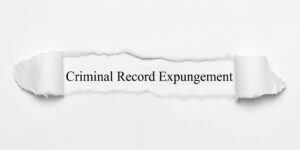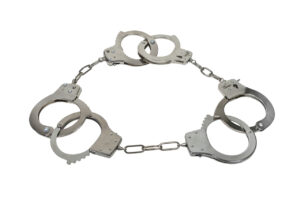What This Page Covers:
|
In the face of federal prosecution, feelings of uncertainty and fear are expected. While the journey ahead may seem daunting, with the right defender by your side, you can rest assured that your rights will be protected every step of the way.
Navigating the complexities of federal criminal law demands a deep understanding of the system and an ability to foresee the strategies of the opposing side. At Bernal Law, our federal criminal defense lawyers in San Diego possess an intimate familiarity with San Diego’s federal courtrooms that is unmatched. Federal criminal defense Attorney Pedro Bernal, Esq. served as a Deputy District Attorney in the San Diego District Attorney’s Office and as a Special Assistant United States Attorney in the U.S. Attorney’s Office in San Diego, where he prosecuted federal crimes. Today, he brings the knowledge he acquired from their side to yours.
WHAT IS A FEDERAL CRIME?
Understanding why certain crimes are prosecuted federally rather than at the state level can be nuanced.
For instance, drug trafficking within California, like moving methamphetamine from San Diego to Orange County, is a state felony, as it involves movement within state-controlled areas. However, if these drugs cross state lines, say from California to Nevada, the crime escalates to a federal offense due to the interstate nature of the act.
In some instances, a single action can lead to both state and federal charges. For example, trafficking drugs across county lines might attract state felony charges, while moving them across state lines could add federal charges. These cases are handled separately, adding layers of complexity to the defense.
State laws, including those in California, are detailed in codes and statutes set by the state legislature, which outline state-level offenses and their penalties.
Conversely, federal laws compiled in the United States Code govern offenses recognized at the national level. These laws are enacted after passing through both houses of Congress and receiving the President’s signature.
TYPES OF FEDERAL CRIME CASES OUR FIRM DEFENDS IN SAN DIEGO, CALIFORNIA
Bernal Law is equipped to tackle a diverse array of federal criminal cases. Our in-depth understanding of federal law, combined with years of courtroom experience, positions us as your steadfast advocates in the face of serious charges.
Our San Diego federal criminal defense lawyers handle an extensive spectrum of federal crimes, including, but not limited to:
White-Collar Crimes
White-collar crimes encompass a wide range of non-violent offenses committed for financial gain. Our federal criminal defense lawyers in San Diego cover cases involving:
- Fraud
- Embezzlement
- Bribery
- Insider trading
- Computer hacking
Our San Diego federal criminal defense lawyers delve deep into the intricacies of financial transactions, corporate practices, and regulatory compliance to construct a defense that addresses the complex nature of these charges.
Drug Offenses
Federal drug charges can lead to severe penalties, necessitating a strategic defense.
Whether you are facing charges related to drug trafficking, distribution, manufacturing, or conspiracy, we employ a multi-faceted approach to challenge evidence, scrutinize law enforcement procedures, and safeguard your rights.
Fraud and Financial Crimes
Federal fraud charges encompass healthcare fraud, mail and wire fraud, securities fraud, and other fraud crimes.
Our comprehensive knowledge of federal statutes and regulations governing these offenses allows us to dissect the prosecution’s case, analyze financial records, and challenge the evidence to undermine allegations of fraudulent activity.
Violent Crimes with Federal Jurisdiction
Certain violent crimes fall under federal jurisdiction, often involving matters such as organized crime, gang-related offenses, and acts committed on federal property.
Our defense strategy for these cases draws upon a thorough examination of the evidence, witness testimonies, and applicable federal laws to secure the best possible outcome.
Federal Conspiracy Charges
Conspiracy charges can be complex, as they involve alleged agreements between two or more individuals to commit a federal crime.
Our San Diego federal criminal defense lawyers meticulously dissect these federal criminal cases, scrutinizing the evidence for weaknesses and inconsistencies while demonstrating that a mere association does not necessarily constitute criminal conspiracy.
The Federal Criminal Process: What to Expect?
The federal criminal process can feel overwhelming, and several smaller parts are within the timeline. Typically, a qualified attorney who tackles criminal defense cases will be able to support you and make the process far more accessible and less stressful.
Investigation
Before formal charges can be filed against someone, certain agencies will use criminal investigators to collect information. Some of these agencies will include the Federal Bureau of Investigation (FBI), Drug Enforcement Administration (DEA), United States Secret Service (USSS), and Homeland Security (DHS/HSI). Other agencies may also conduct parts of the investigation.
They will collect direct and circumstantial evidence, and this may include testimony from eyewitnesses to the suspected crime. After this information has been compiled, the decision to file formal charges may be made.
Receiving Formal Charges
The prosecutor will eventually present the case to the grand jury, which may lead to indictment. When indicted, they are given a formal notice claiming they are believed to have committed some crime. The notice and indictment will include basic information about the charges against the individual.
At this point, the individual receiving the charges may contact an attorney for support during the case. Working with an attorney can make it significantly easier to fight charges, reduce penalties, or occasionally avoid convictions.
Initial Hearing or Arraignment
After the arrest, either on the same day or the day after the individual has been arrested and charged, they will be brought in for an initial hearing. This gives the suspected individual the opportunity to learn more about their individual rights, the charges being brought against them, and whether or not they will be held in prison until the date of their trial.
Individuals may be released from prison if they meet bail requirements, but the judge will decide whether they can be granted bail.
The judge will consider several elements of the circumstances, including whether the individual has a criminal history, has family nearby, how long they have lived in the area, and other information that may indicate whether the person is a flight risk.
Discovery
As the prosecutor learns more about the case, they must share information and evidence with the defendant. In particular, this discovery process will require the prosecution to share copies of materials and other evidence with the defendant. The discovery process intends to limit the surprise each party will experience during the trial.
At this time, the prosecutor will also interview witnesses to determine which ones they are likely to call to the stand during trial.
Plea Bargaining
Typically, the government will only offer the defendant a plea deal if it is already aware it has a strong case. This plea deal will allow the defendant to spend reduced time in trial and decrease the odds of more severe penalties or sentences.
To accept the plea deal, the defendant must plead guilty in open federal court before the judge, and they may receive sentencing at that time.
Preliminary Hearing
If the defendant pleads not guilty, or a plea deal is not offered, there will be a preliminary hearing. At this stage, the prosecutor will demonstrate the evidence showing the defendant should be charged. However, preliminary hearings are not always necessary, and the defendant may waive them.
This preliminary hearing must be held within 14 days of the initial appearance when the defendant is being held in jail. This hearing must be held within 21 days if the defendant is out on bail.
If the judge decides that there is probable cause based on the evidence presented during this stage, a trial will be scheduled. However, when a judge determines there is no probable cause, the charges will be dismissed.
Pre-Trial Motions
Either the attorney for the defendant or the prosecutor can file motions, which may impact the trial, courtroom, evidence, testimony, or other factors relating to the case. However, only the judge can decide the outcome of any motions the attorneys file.
These motions may include motions to dismiss, suppress, or change of venue. These might be filed if one attorney or the other decides there is insufficient evidence, to restrict some pieces of evidence from being presented, or to maintain the jury’s impartiality.
Motions may be necessary if there were investigations without probable cause, the facts are insufficient to incriminate the defendant, or if there has been significant news coverage of the case.
Trial
This is the part of the process most people are aware of. At this point, witnesses and evidence will be presented to prove or disprove whether a defendant is guilty. At this point, the jury will also see evidence and hear from witnesses for the first time.
The judge will make several decisions, including what evidence can be presented. The attorneys will both be part of selecting jurors in the case.
Trials will also include opening statements, case presentations and witness examinations, objections, closing statements, jury deliberations, and announcements of the verdict.
Post-Trial Motions
Additional motions may be filed after the trial and presentation of the verdict. These motions may include a motion for a new trial, for judgment of acquittal, or to vacate, set aside, or correct a sentence.
Sentencing
After the defendant is found guilty, they will return to the court several months later for sentencing. The judge will consider many factors, receive assistance and guidance, and make a final decision. This decision will be based on the minimum and maximum punishments Congress has established.
Appeal
Even if a defendant is found guilty in a trial, they can appeal to the Circuit Court. This is an opportunity to argue that the defendant was incorrectly found guilty or that the sentencing was too harsh.
However, another judge will determine which course of action will be taken after an appeal is made. This may or may not result in the case reopening, going to trial, or taking other paths.
POSSIBLE PENALTIES FOR FEDERAL CRIMES IN SAN DIEGO, CALIFORNIA
Convictions for federal criminal cases often come with severe penalties that can follow you for the rest of your life. At Bernal Law, our federal criminal defense attorneys in San Diego understand the gravity of these penalties, and we are resolute in our commitment to minimizing their impact on your future.
Our battle-tested defense strategies are designed not just to secure your freedom, but to shield you from the harshest penalties the federal justice system can impose.
Federal law dictates an array of penalties that can be imposed upon conviction, each varying based on the nature and severity of the offense. These penalties may include:
- Incarceration: Federal convictions often lead to lengthy prison sentences. The duration of incarceration depends on the offense, ranging from months to years, or even life in prison in extreme cases.
- Fines: Federal fines can be substantial, leaving a considerable financial burden. The amount varies depending on the offense and its impact.
- Restitution: In cases involving victims, restitution may be ordered to compensate for financial losses or damages caused by the offense.
- Asset forfeiture: The government may seize assets believed to be connected to criminal activity, impacting your financial stability.
- Probation: Following incarceration, individuals might face supervised release or probation, during which strict conditions must be adhered to.
- Professional consequences: A federal conviction can lead to the loss of professional licenses, tarnishing your career prospects.
- Impact on immigration status: Non-U.S. citizens may face deportation, denial of re-entry, or other immigration-related consequences.
Federal crime convictions can also have far-reaching effects on personal relationships, housing, and social standing.
At Bernal Law, our federal criminal defense lawyers in San Diego know how to build a strong defense, gather compelling evidence, and skillfully advocate on your behalf in the courtroom.
Our experience in federal trials, negotiations, and appeals empowers us to confidently protect your rights and interests at every stage of the legal process.
7 TYPES OF DEFENSES AGAINST FEDERAL CRIMES
When facing federal criminal charges, several defense strategies can be effectively employed, including the following:
- Constitutional Rights Violations: This covers unlawful arrest, illegal search and seizure, and breaches of Miranda rights.
- False Accusations: Challenging the validity of accusations made against you.
- Compromised Evidence: Highlighting issues with how evidence was collected or handled.
- Mistaken Identity: Arguing that you were incorrectly identified as the perpetrator.
- Weak or Insufficient Evidence: Pointing out the lack of strong evidence supporting the charges.
- Affirmative Defenses: These are defenses where, even if the prosecution’s claims are true, there are reasons you should not be held responsible, such as self-defense, entrapment, or acting under duress.
- Alibi: Providing evidence that you were elsewhere when the alleged crime took place.
In federal cases, the prosecution must prove your guilt “beyond a reasonable doubt,” which is a very high standard of proof.
At Bernal Law, our role is to construct a strong defense strategy and consistently challenge the government’s case at every stage.
Why Do You Need a Federal Criminal Defense Lawyer?
If you have been charged with a federal crime of any kind, we encourage you to work with a qualified criminal defense lawyer for support. A federal criminal defense lawyer from Bernal Law can provide valuable support resulting in outstanding results, such as reduced penalties.
We are prepared to support you in many ways when you retain our support and services, including but not limited to the following:
- Interviewing witnesses
- Helping formulate a plea
- Investigating the prosecutor’s case
- Evaluating potential sentences
- Gathering evidence
- Reviewing search and seizure procedures
- Conducting an independent investigation
- Negotiating with every party
- Preparing your case for court
- Consulting with experts
- Assuring that all documents are filed correctly and on time
- Communicating with the other parties on your behalf
- Organizing and presenting the evidence
- Accessing research methods and tools only available to legal professionals
- Connecting you with additional legal professionals and specialists
- Reducing stress related to your case
We urge you to contact us immediately and refrain from representing yourself during your case. You have the right to an attorney.
When you contact us quickly, we will have more time to collect evidence, understand your exact needs and circumstances, create strong arguments in your favor, and reduce the severity of penalties and consequences.
CONTACT AN EXPERIENCED FEDERAL CRIMINAL DEFENSE ATTORNEY IN SAN DIEGO TODAY
Experience, dedication, and strategic prowess can mean the difference between a future reclaimed and one lost to the justice system. With an impressive track record spanning a spectrum of federal cases, we have earned our reputation as the go-to choice for those who refuse to compromise on their defense.
Are you or a loved one facing federal criminal charges in San Diego? Reach out to Bernal Law today to schedule a free, confidential consultation. Call (619) 736-9092 or fill out our contact form.




